NATURAL FOOD REMEDIES FOR DIABETES
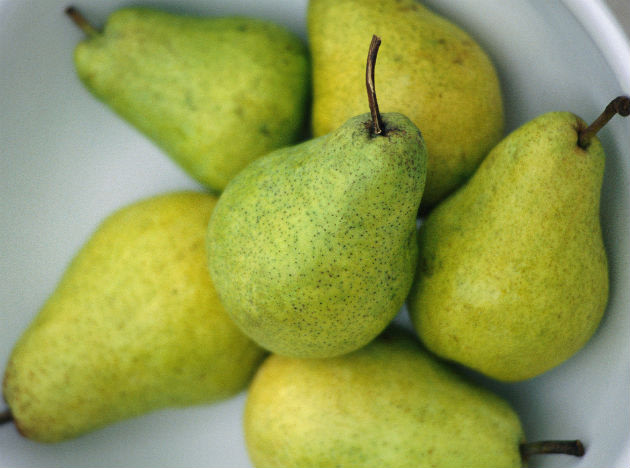
Pears: Rich in potassium and loaded with fibre, a pear is also
low in carbohydrates! Add them in your fruit bowl or mix it up
with spinach to get an instant fix for your hunger pangs. Despite
the fact that fruits and vegetables are good for you, there’s no
denying the fact that some of them contain sugar and
carbohydrates, albeit in small amounts. So keep your portions
small and do check with your nutritionist before any major diet
changes.
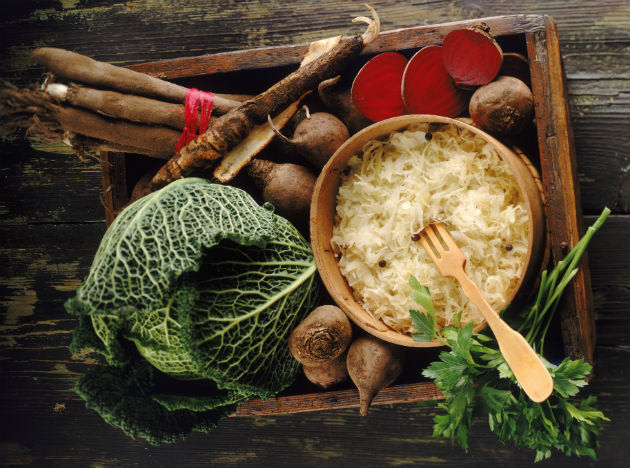
Cabbage: Cabbage has a low glycaemic index of 10 which is very diabetes friendly. It is also a rich source of vitamin C and K. However, keep an eye on the fat content if you are including cabbage in your diet.
ps- those who are high in potassium, should blanch cabbage before using it.
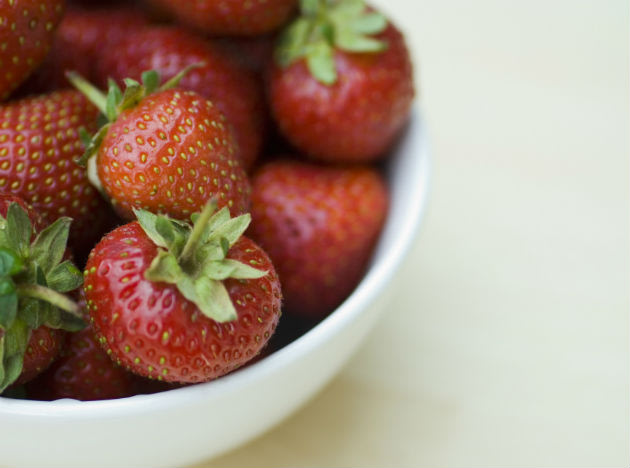
Berries: Tempting red strawberries or indigo coloured blueberries or just any berries for that matter. Experts advice that these little colourful fruits are rich in antioxidants, vitamins and fibre and are low-carb! So top off your breakfast with some strawberries or just toss them in your mouth. It adds a pop of colour and a dollop of health!
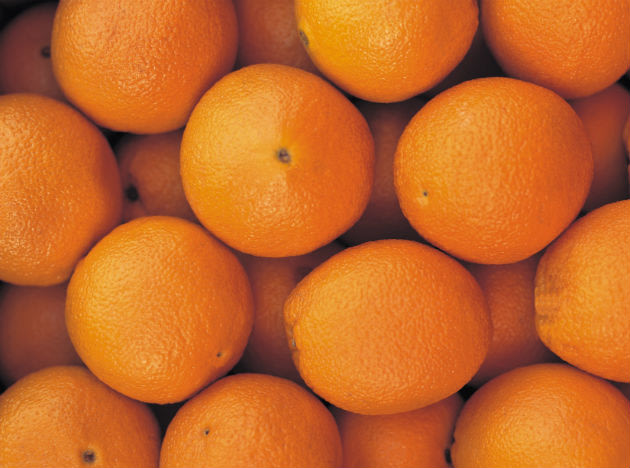
Oranges: Despite the fact that an orange contains sugar, it also contains other compounds that help control blood glucose, which makes it good for a diabetes patient. The soluble fibre present in an orange thickens as it’s being digested. This in turn slows down the sugar absorption, offering better control of your blood sugar.
ps- Those whose kidneys are affected or if they've high potassium, then it is better to avoid all citrus
fruits.
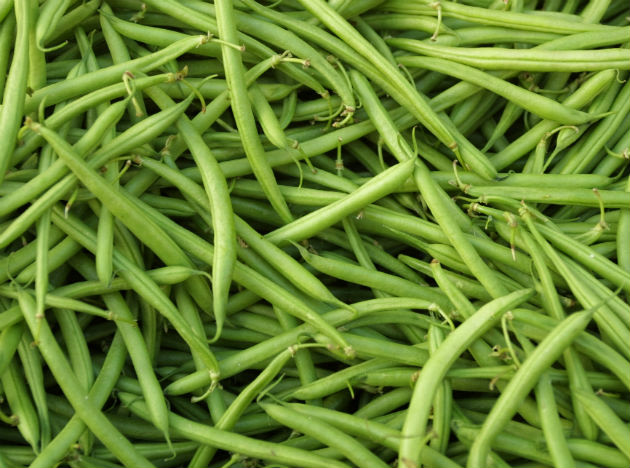
Beans: Kidney beans, black beans or lentils have been shown to have immense health benefits for a diabetic. They are low fat, low calorie and high protein! They make you feel full, slow down your digestion process and prevent blood sugar from spiking.
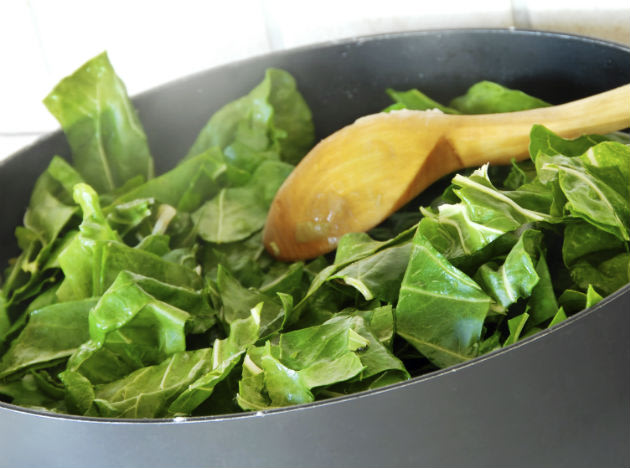
Spinach: Is there nothing this superfood can’t do? Research shows that green, leafy and fresh spinach is extremely low in calories and carbohydrates, which is especially good news if you are a diabetic. In fact, spinach is one of the rare things that a diabetic can eat almost freely!
ps- those who have high potassium, it is better to blanch spinach before you consume it in any form.
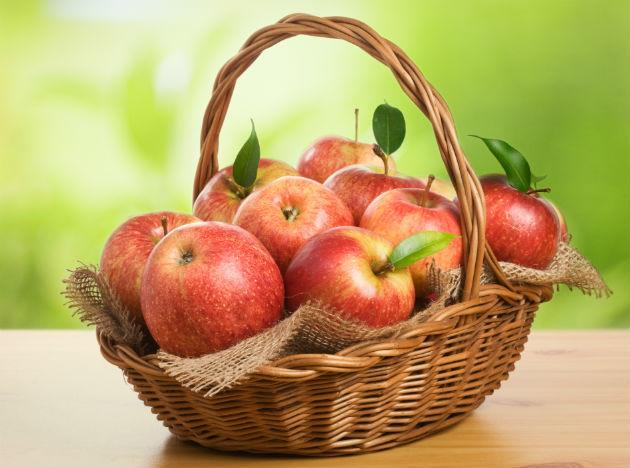
Apples: Low in calories and carbohydrate content, this portable fruit can be carried around easily in your bag, making it the perfect snack. Fibrous, with tonnes of vitamins and antioxidants, this diabetes-friendly fruit will add a crunchy and healthy punch to your diet.
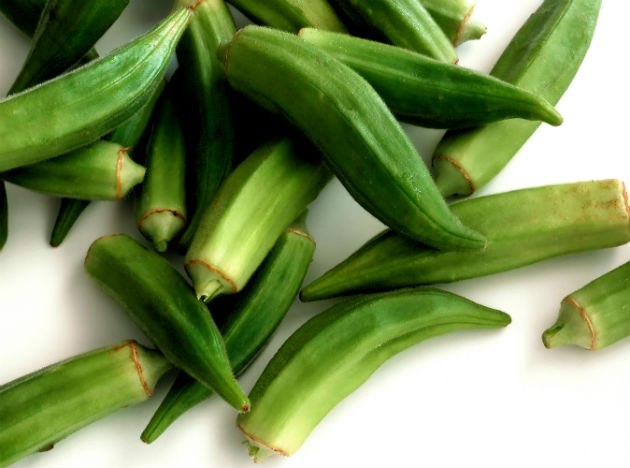
Okra (Lady’s finger): This vegetable is a sure shot hit with kids and diabetics! Like brinjals and oranges, the presence of soluble fibre in okra makes this humble vegetable one of the best things to eat if you are diabetic.
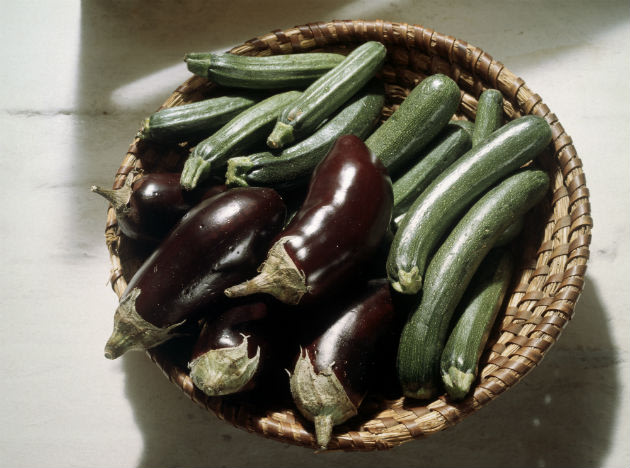
Brinjal: Non-starchy, low carbohydrate and soluble fibre, could a vegetable be more perfect for diabetes? Load up on this easily available vegetable and enjoy the goodness that it offers!
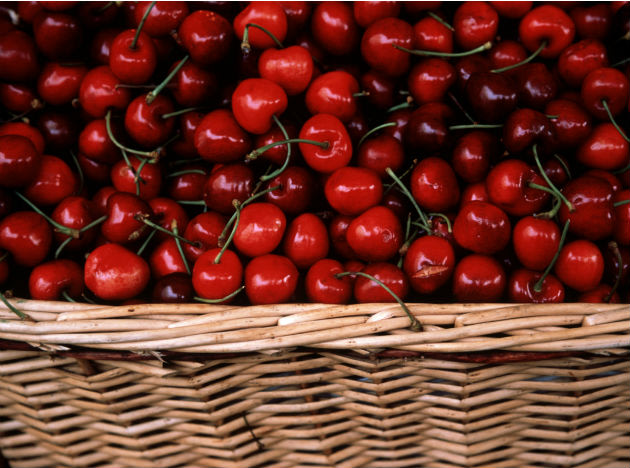
Cherries: If you have a sweet tooth, don’t worry! Sweet cherries are good for you! The sugar in them is natural. To add to that, they have a low calorie count and a minimal carbohydrate level! But make sure you check the labels before you pick up a can of cherries as many of them are loaded with artificial sweeteners!
Drink water
Water tends to mobilize the high sugar content in blood and thereby helps in preventing aggravation. Drinking 2.5 litres of water, on a daily basis, will not only regulate physical functions but will also lower chances of cardiovascular and diabetic ailments.
Green Tea
Green tea is nothing less than a miracle cure for ailments.
Consuming a cup of unsweetened green tea regularly will rid
the body of free radicals and let the antioxidants, contained
within, normalize the blood sugar levels. This will aid in
reducing diabetes and help keep the chances at bay.
Vinegar
Vinegar is an excellent dietary compound responsible for
diluting concentrated sugar-levels in the blood. Studies have
shown that two spoonfuls of vinegar before a meal can reduce
the glucose influx.
Fresh Fruits
Natural fruit sugars are the best options, as dietary
supplements, since they provide all the necessary vitamins and
minerals required. Studies have shown that an adequate intake
of Vitamin A and C maintains blood and bone health. Include
fresh citrus fruits like oranges, apples, pineapples, grapes and
lemons in your diet. Consume bananas in moderation, since
their sugar structure is more complex than that of citrus fruits.
Exercise
Proper exercise is the key element in maintaining optimum
health. Studies have shown that exercise improves the blood
flow and clears sugar levels in the blood. This results in higher
metabolism and lower risks of diabetes.
health. Studies have shown that exercise improves the blood
flow and clears sugar levels in the blood. This results in higher
metabolism and lower risks of diabetes.
Soy
Soy proteins are one of the miracle cures for reducing diabetes
among crucial patients. The isoflavones contained in them
reduce the sugar content in blood and keep the body
nourished, while accumulating much fewer calories, when
compared to other foods.
Sunlight
Studies have shown that moderate exposure to sunlight boosts
the physical synthesis of vitamin D, which is essential for doing
away with insulin resistance in the body. Lack of Vitamin D
results in low insulin production. While soaking up the sun might
sound like an excellent yet easy remedy, to reduce diabetes
levels, one must pay attention not to overexpose themselves to
avoid risks of skin cancer..
Fresh Vegetables
Fresh vegetables are rich sources of iron, zinc, potassium,
calcium and other essential nutrients. These nutrients restore
the balance and aid in overall cardiovascular and nervous
health. This prompts the body to assimilate proteins and
produce insulin in an optimum level.
Lean Meat
Lean meats are great substitutes for non-vegetarians under
diabetes risk. The high protein content is essential to sustain
physical well-being, since fats and high-carbohydrate diets are
out of the question.
Cinnamon Powder
Powdered cinnamon, apart from spicing up your foods, has the
ability to lower blood sugar levels, as well. Take a pinch of
cinnamon with warm water every day and kiss diabetes
goodbye.
Sleep Well
Eat Chapattis :
Another useful way of managing diabetes is increasing the
daily intake of fiber in the natural form. This includes increasing
the fiber content in chappatis that tend to be eaten with
regularity in Indian homes. The refined flour should be mixed
with a combination of flours procured from different cereals,
particularly those high in soluble fiber. This includes flours of
barley and lentils like Chana Dal and soya bean.
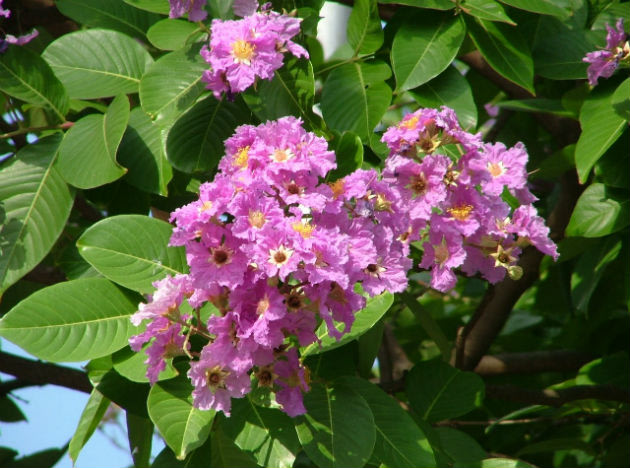
Using Jarul or Banaba:
Diabetics can use Banaba or Jarul plant extract. Banaba is
among the lesser known of herbal plants in India. Along with
India, it is grown in only a handful of other nations. The herbal
powder of Banaba extract can be used to make herbal tea.
This plant contains high concentrations of contains Corosolic
acid—the most potent of biochemical compounds that
stimulate faster glucose metabolism and help to regulate blood
sugar and insulin levels that is very useful for combating
diabetes.
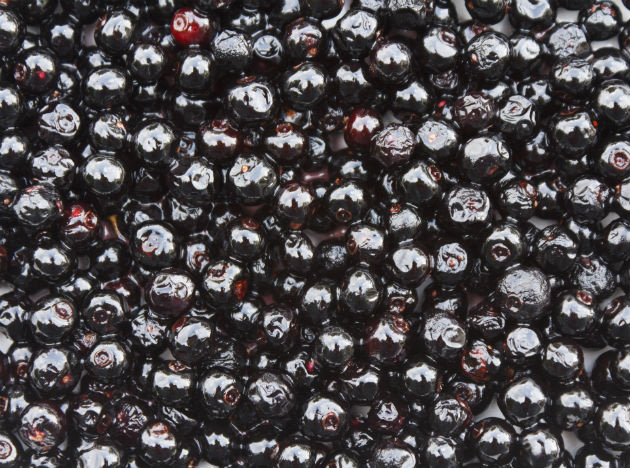
Jamun:
Jamun is one of the rarest plants where nearly each part, the
leaves, berry and seeds are known to help in controlling blood
sugar levels. Neem leaves are useful in a similar manner. Amla
or the Indian goose Berry is similarly effective in managing
sugar levels. Instead of using only Neem leaves, you can also
add leaves of Tulsi and Bel Patra. All these leaves can be
boiled together for increasing the potency of the filtered extract
 Pears: Rich in potassium and loaded with fibre, a pear is also low in carbohydrates! Add them in your fruit bowl or mix it up with spinach to get an instant fix for your hunger pangs. Despite the fact that fruits and vegetables are good for you, there’s no denying the fact that some of them contain sugar and carbohydrates, albeit in small amounts. So keep your portions small and do check with your nutritionist before any major diet changes.
Pears: Rich in potassium and loaded with fibre, a pear is also low in carbohydrates! Add them in your fruit bowl or mix it up with spinach to get an instant fix for your hunger pangs. Despite the fact that fruits and vegetables are good for you, there’s no denying the fact that some of them contain sugar and carbohydrates, albeit in small amounts. So keep your portions small and do check with your nutritionist before any major diet changes.- Cabbage: Cabbage has a low glycaemic index of 10 which is very diabetes friendly. It is also a rich source of vitamin C and K. However, keep an eye on the fat content if you are including cabbage in your diet.
- Berries: Tempting red strawberries or indigo coloured blueberries or just any berries for that matter. Experts advice that these little colourful fruits are rich in antioxidants, vitamins and fibre and are low-carb! So top off your breakfast with some strawberries or just toss them in your mouth. It adds a pop of colour and a dollop of health!
- Oranges: Despite the fact that an orange contains sugar, it also contains other compounds that help control blood glucose, which makes it good for a diabetes patient. The soluble fibre present in an orange thickens as it’s being digested. This in turn slows down the sugar absorption, offering better control of your blood sugar.
- Beans: Kidney beans, black beans or lentils have been shown to have immense health benefits for a diabetic. They are low fat, low calorie and high protein! They make you feel full, slow down your digestion process and prevent blood sugar from spiking.
- Spinach: Is there nothing this superfood can’t do? Research shows that green, leafy and fresh spinach is extremely low in calories and carbohydrates, which is especially good news if you are a diabetic. In fact, spinach is one of the rare things that a diabetic can eat almost freely!
- Apples: Low in calories and carbohydrate content, this portable fruit can be toted around easily in your bag, making it the perfect snack. Fibrous, with tonnes of vitamins and antioxidants, this diabetes-friendly fruit will add a crunchy and healthy punch to your diet.
- Okra (Lady’s finger): This vegetable is a sure shot hit with kids and diabetics! Like brinjals and oranges, the presence of soluble fibre in okra makes this humble vegetable one of the best things to eat if you are diabetic.
- Brinjal: Non-starchy, low carbohydrate and soluble fibre, could a vegetable be more perfect for diabetes? Load up on this easily available vegetable and enjoy the goodness that it offers!
- Cherries: If you have a sweet tooth, don’t worry! Sweet cherries are good for you! The sugar in them is natural. To add to that, they have a low calorie count and a minimal carbohydrate level! But make sure you check the labels before you pick up a can of cherries as many of them are loaded with artificial sweeteners!
- Diabetes is among the most debilitating of lifestyle diseases, often the precursor to many other types of health disorders such as obesity, cardiovascular diseases and chronic illnesses of the eye. Most diabetics tend to depend upon taking medications, many of which include hormone supplementation injections and drugs for controlling the sugar levels. Though these aids are often critical for managing cases where diabetes seems to have turned into an incurable condition, it is always better to seek natural cures. These natural remedies don’t put forth the kind of side-effects associated with stronger medications and can be resourced from our everyday supplies.less
- Drink water
Water tends to mobilize the high sugar content in blood and thereby helps in preventing aggravation. Drinking 2.5 litres of water, on a daily basis, will not only regulate physical functions but will also lower chances of cardiovascular and diabetic ailments. - Green Tea
Green tea is nothing less than a miracle cure for ailments. Consuming a cup of unsweetened green tea regularly will rid the body of free radicals and let the antioxidants, contained within, normalize the blood sugar levels. This will aid in reducing diabetes and help keep the chances at bay. - Vinegar
Vinegar is an excellent dietary compound responsible for diluting concentrated sugar-levels in the blood. Studies have shown that two spoonfuls of vinegar before a meal can reduce the glucose influx. - Fresh Fruits
Natural fruit sugars are the best options, as dietary supplements, since they provide all the necessary vitamins and minerals required. Studies have shown that an adequate intake of Vitamin A and C maintains blood and bone health. Include fresh citrus fruits like oranges, apples, pineapples, grapes and lemons in your diet. Consume bananas in moderation, since their sugar structure is more complex than that of citrus fruits. - Exercise
Proper exercise is the key element in maintaining optimum health. Studies have shown that exercise improves the blood flow and clears sugar levels in the blood. This results in higher metabolism and lower risks of diabetes. - Soy
Soy proteins are one of the miracle cures for reducing diabetes among crucial patients. The isoflavones contained in them reduce the sugar content in blood and keep the body nourished, while accumulating much fewer calories, when compared to other foods. - Sunlight
Studies have shown that moderate exposure to sunlight boosts the physical synthesis of vitamin D, which is essential for doing away with insulin resistance in the body. Lack of Vitamin D results in low insulin production. While soaking up the sun might sound like an excellent yet easy remedy, to reduce diabetes levels, one must pay attention not to overexpose themselves to avoid risks of skin cancer. - Fresh Vegetables
Fresh vegetables are rich sources of iron, zinc, potassium, calcium and other essential nutrients. These nutrients restore the balance and aid in overall cardiovascular and nervous health. This prompts the body to assimilate proteins and produce insulin in an optimum level. - Lean Meat
Lean meats are great substitutes for non-vegetarians under diabetes risk. The high protein content is essential to sustain physical well-being, since fats and high-carbohydrate diets are out of the question. - Cinnamon Powder
Powdered cinnamon, apart from spicing up your foods, has the ability to lower blood sugar levels, as well. Take a pinch of cinnamon with warm water every day and kiss diabetes goodbye.
- Pears: Rich in potassium and loaded with fibre, a pear is also low in carbohydrates! Add them in your fruit bowl or mix it up with spinach to get an instant fix for your hunger pangs. Despite the fact that fruits and vegetables are good for you, there’s no denying the fact that some of them contain sugar and carbohydrates, albeit in small amounts. So keep your portions small and do check with your nutritionist before any major diet changes.
- Cabbage: Cabbage has a low glycaemic index of 10 which is very diabetes friendly. It is also a rich source of vitamin C and K. However, keep an eye on the fat content if you are including cabbage in your diet.
- Berries: Tempting red strawberries or indigo coloured blueberries or just any berries for that matter. Experts advice that these little colourful fruits are rich in antioxidants, vitamins and fibre and are low-carb! So top off your breakfast with some strawberries or just toss them in your mouth. It adds a pop of colour and a dollop of health!
- Oranges: Despite the fact that an orange contains sugar, it also contains other compounds that help control blood glucose, which makes it good for a diabetes patient. The soluble fibre present in an orange thickens as it’s being digested. This in turn slows down the sugar absorption, offering better control of your blood sugar.
- Beans: Kidney beans, black beans or lentils have been shown to have immense health benefits for a diabetic. They are low fat, low calorie and high protein! They make you feel full, slow down your digestion process and prevent blood sugar from spiking.
- Spinach: Is there nothing this superfood can’t do? Research shows that green, leafy and fresh spinach is extremely low in calories and carbohydrates, which is especially good news if you are a diabetic. In fact, spinach is one of the rare things that a diabetic can eat almost freely!
- Apples: Low in calories and carbohydrate content, this portable fruit can be toted around easily in your bag, making it the perfect snack. Fibrous, with tonnes of vitamins and antioxidants, this diabetes-friendly fruit will add a crunchy and healthy punch to your diet.
- Okra (Lady’s finger): This vegetable is a sure shot hit with kids and diabetics! Like brinjals and oranges, the presence of soluble fibre in okra makes this humble vegetable one of the best things to eat if you are diabetic.
- Brinjal: Non-starchy, low carbohydrate and soluble fibre, could a vegetable be more perfect for diabetes? Load up on this easily available vegetable and enjoy the goodness that it offers!
- Cherries: If you have a sweet tooth, don’t worry! Sweet cherries are good for you! The sugar in them is natural. To add to that, they have a low calorie count and a minimal carbohydrate level! But make sure you check the labels before you pick up a can of cherries as many of them are loaded with artificial sweeteners!
- Diabetes is among the most debilitating of lifestyle diseases, often the precursor to many other types of health disorders such as obesity, cardiovascular diseases and chronic illnesses of the eye. Most diabetics tend to depend upon taking medications, many of which include hormone supplementation injections and drugs for controlling the sugar levels. Though these aids are often critical for managing cases where diabetes seems to have turned into an incurable condition, it is always better to seek natural cures. These natural remedies don’t put forth the kind of side-effects associated with stronger medications and can be resourced from our everyday supplies.less
- Drink water
Water tends to mobilize the high sugar content in blood and thereby helps in preventing aggravation. Drinking 2.5 litres of water, on a daily basis, will not only regulate physical functions but will also lower chances of cardiovascular and diabetic ailments. - Green Tea
Green tea is nothing less than a miracle cure for ailments. Consuming a cup of unsweetened green tea regularly will rid the body of free radicals and let the antioxidants, contained within, normalize the blood sugar levels. This will aid in reducing diabetes and help keep the chances at bay. - Vinegar
Vinegar is an excellent dietary compound responsible for diluting concentrated sugar-levels in the blood. Studies have shown that two spoonfuls of vinegar before a meal can reduce the glucose influx. - Fresh Fruits
Natural fruit sugars are the best options, as dietary supplements, since they provide all the necessary vitamins and minerals required. Studies have shown that an adequate intake of Vitamin A and C maintains blood and bone health. Include fresh citrus fruits like oranges, apples, pineapples, grapes and lemons in your diet. Consume bananas in moderation, since their sugar structure is more complex than that of citrus fruits. - Exercise
Proper exercise is the key element in maintaining optimum health. Studies have shown that exercise improves the blood flow and clears sugar levels in the blood. This results in higher metabolism and lower risks of diabetes. - Soy
Soy proteins are one of the miracle cures for reducing diabetes among crucial patients. The isoflavones contained in them reduce the sugar content in blood and keep the body nourished, while accumulating much fewer calories, when compared to other foods. - Sunlight
Studies have shown that moderate exposure to sunlight boosts the physical synthesis of vitamin D, which is essential for doing away with insulin resistance in the body. Lack of Vitamin D results in low insulin production. While soaking up the sun might sound like an excellent yet easy remedy, to reduce diabetes levels, one must pay attention not to overexpose themselves to avoid risks of skin cancer. - Fresh Vegetables
Fresh vegetables are rich sources of iron, zinc, potassium, calcium and other essential nutrients. These nutrients restore the balance and aid in overall cardiovascular and nervous health. This prompts the body to assimilate proteins and produce insulin in an optimum level.
- SoySoy proteins are one of the miracle cures for reducing diabetes among crucial patients. The isoflavones contained in them reduce the sugar content in blood and keep the body nourished, while accumulating much fewer calories, when compared to other foodsExerciseProper exercise is the key element in maintaining optimum health. Studies have shown that exercise improves the blood flow and clears sugar levels in the blood. This results in higher metabolism and lower risks of diabetes.Pears: Rich in potassium and loaded with fibre, a pear is also low in carbohydrates! Add them in your fruit bowl or mix it up with spinach to get an instant fix for your hunger pangs. Despite the fact that fruits and vegetables are good for you, there’s no denying the fact that some of them contain sugar and carbohydrates, albeit in small amounts. So keep your portions small and do check with your nutritionist before any major diet changes.
- Cabbage: Cabbage has a low glycaemic index of 10 which is very diabetes friendly. It is also a rich source of vitamin C and K. However, keep an eye on the fat content if you are including cabbage in your diet.
- Berries: Tempting red strawberries or indigo coloured blueberries or just any berries for that matter. Experts advice that these little colourful fruits are rich in antioxidants, vitamins and fibre and are low-carb! So top off your breakfast with some strawberries or just toss them in your mouth. It adds a pop of colour and a dollop of health!
- Oranges: Despite the fact that an orange contains sugar, it also contains other compounds that help control blood glucose, which makes it good for a diabetes patient. The soluble fibre present in an orange thickens as it’s being digested. This in turn slows down the sugar absorption, offering better control of your blood sugar.
- Beans: Kidney beans, black beans or lentils have been shown to have immense health benefits for a diabetic. They are low fat, low calorie and high protein! They make you feel full, slow down your digestion process and prevent blood sugar from spiking.
- Spinach: Is there nothing this superfood can’t do? Research shows that green, leafy and fresh spinach is extremely low in calories and carbohydrates, which is especially good news if you are a diabetic. In fact, spinach is one of the rare things that a diabetic can eat almost freely!
- Apples: Low in calories and carbohydrate content, this portable fruit can be toted around easily in your bag, making it the perfect snack. Fibrous, with tonnes of vitamins and antioxidants, this diabetes-friendly fruit will add a crunchy and healthy punch to your diet.
- Okra (Lady’s finger): This vegetable is a sure shot hit with kids and diabetics! Like brinjals and oranges, the presence of soluble fibre in okra makes this humble vegetable one of the best things to eat if you are diabetic.
- Brinjal: Non-starchy, low carbohydrate and soluble fibre, could a vegetable be more perfect for diabetes? Load up on this easily available vegetable and enjoy the goodness that it offers!
- Cherries: If you have a sweet tooth, don’t worry! Sweet cherries are good for you! The sugar in them is natural. To add to that, they have a low calorie count and a minimal carbohydrate level! But make sure you check the labels before you pick up a can of cherries as many of them are loaded with artificial sweeteners!
- Diabetes is among the most debilitating of lifestyle diseases, often the precursor to many other types of health disorders such as obesity, cardiovascular diseases and chronic illnesses of the eye. Most diabetics tend to depend upon taking medications, many of which include hormone supplementation injections and drugs for controlling the sugar levels. Though these aids are often critical for managing cases where diabetes seems to have turned into an incurable condition, it is always better to seek natural cures. These natural remedies don’t put forth the kind of side-effects associated with stronger medications and can be resourced from our everyday supplies.less
- Drink water
Water tends to mobilize the high sugar content in blood and thereby helps in preventing aggravation. Drinking 2.5 litres of water, on a daily basis, will not only regulate physical functions but will also lower chances of cardiovascular and diabetic ailments. - Green Tea
Green tea is nothing less than a miracle cure for ailments. Consuming a cup of unsweetened green tea regularly will rid the body of free radicals and let the antioxidants, contained within, normalize the blood sugar levels. This will aid in reducing diabetes and help keep the chances at bay. - Vinegar
Vinegar is an excellent dietary compound responsible for diluting concentrated sugar-levels in the blood. Studies have shown that two spoonfuls of vinegar before a meal can reduce the glucose influx. - Fresh Fruits
Natural fruit sugars are the best options, as dietary supplements, since they provide all the necessary vitamins and minerals required. Studies have shown that an adequate intake of Vitamin A and C maintains blood and bone health. Include fresh citrus fruits like oranges, apples, pineapples, grapes and lemons in your diet. Consume bananas in moderation, since their sugar structure is more complex than that of citrus fruits. - Exercise
Proper exercise is the key element in maintaining optimum health. Studies have shown that exercise improves the blood flow and clears sugar levels in the blood. This results in higher metabolism and lower risks of diabetes.
- Pears: Rich in potassium and loaded with fibre, a pear is also low in carbohydrates! Add them in your fruit bowl or mix it up with spinach to get an instant fix for your hunger pangs. Despite the fact that fruits and vegetables are good for you, there’s no denying the fact that some of them contain sugar and carbohydrates, albeit in small amounts. So keep your portions small and do check with your nutritionist before any major diet changes.
- Cabbage: Cabbage has a low glycaemic index of 10 which is very diabetes friendly. It is also a rich source of vitamin C and K. However, keep an eye on the fat content if you are including cabbage in your diet.
- Berries: Tempting red strawberries or indigo coloured blueberries or just any berries for that matter. Experts advice that these little colourful fruits are rich in antioxidants, vitamins and fibre and are low-carb! So top off your breakfast with some strawberries or just toss them in your mouth. It adds a pop of colour and a dollop of health!
- Oranges: Despite the fact that an orange contains sugar, it also contains other compounds that help control blood glucose, which makes it good for a diabetes patient. The soluble fibre present in an orange thickens as it’s being digested. This in turn slows down the sugar absorption, offering better control of your blood sugar.
- Beans: Kidney beans, black beans or lentils have been shown to have immense health benefits for a diabetic. They are low fat, low calorie and high protein! They make you feel full, slow down your digestion process and prevent blood sugar from spiking.
- Spinach: Is there nothing this superfood can’t do? Research shows that green, leafy and fresh spinach is extremely low in calories and carbohydrates, which is especially good news if you are a diabetic. In fact, spinach is one of the rare things that a diabetic can eat almost freely!
- Apples: Low in calories and carbohydrate content, this portable fruit can be toted around easily in your bag, making it the perfect snack. Fibrous, with tonnes of vitamins and antioxidants, this diabetes-friendly fruit will add a crunchy and healthy punch to your diet.
- Okra (Lady’s finger): This vegetable is a sure shot hit with kids and diabetics! Like brinjals and oranges, the presence of soluble fibre in okra makes this humble vegetable one of the best things to eat if you are diabetic.
- Brinjal: Non-starchy, low carbohydrate and soluble fibre, could a vegetable be more perfect for diabetes? Load up on this easily available vegetable and enjoy the goodness that it offers!
- Cherries: If you have a sweet tooth, don’t worry! Sweet cherries are good for you! The sugar in them is natural. To add to that, they have a low calorie count and a minimal carbohydrate level! But make sure you check the labels before you pick up a can of cherries as many of them are loaded with artificial sweeteners!
- Diabetes is among the most debilitating of lifestyle diseases, often the precursor to many other types of health disorders such as obesity, cardiovascular diseases and chronic illnesses of the eye. Most diabetics tend to depend upon taking medications, many of which include hormone supplementation injections and drugs for controlling the sugar levels. Though these aids are often critical for managing cases where diabetes seems to have turned into an incurable condition, it is always better to seek natural cures. These natural remedies don’t put forth the kind of side-effects associated with stronger medications and can be resourced from our everyday supplies.less
- Drink water
Water tends to mobilize the high sugar content in blood and thereby helps in preventing aggravation. Drinking 2.5 litres of water, on a daily basis, will not only regulate physical functions but will also lower chances of cardiovascular and diabetic ailments. - Green Tea
Green tea is nothing less than a miracle cure for ailments. Consuming a cup of unsweetened green tea regularly will rid the body of free radicals and let the antioxidants, contained within, normalize the blood sugar levels. This will aid in reducing diabetes and help keep the chances at bay. - Vinegar
Vinegar is an excellent dietary compound responsible for diluting concentrated sugar-levels in the blood. Studies have shown that two spoonfuls of vinegar before a meal can reduce the glucose influx. - Fresh Fruits
Natural fruit sugars are the best options, as dietary supplements, since they provide all the necessary vitamins and minerals required. Studies have shown that an adequate intake of Vitamin A and C maintains blood and bone health. Include fresh citrus fruits like oranges, apples, pineapples, grapes and lemons in your diet. Consume bananas in moderation, since their sugar structure is more complex than that of citrus fruits. - Exercise
Proper exercise is the key element in maintaining optimum health. Studies have shown that exercise improves the blood flow and clears sugar levels in the blood. This results in higher metabolism and lower risks of diabetes.
Pears: Rich in potassium and loaded with fibre, a pear is also low in carbohydrates! Add them in your fruit bowl or mix it up with spinach to get an instant fix for your hunger pangs. Despite the fact that fruits and vegetables are good for you, there’s no denying the fact that some of them contain sugar and carbohydrates, albeit in small amounts. So keep your portions small and do check with your nutritionist before any major diet changes.- Cabbage: Cabbage has a low glycaemic index of 10 which is very diabetes friendly. It is also a rich source of vitamin C and K. However, keep an eye on the fat content if you are including cabbage in your diet.
- Berries: Tempting red strawberries or indigo coloured blueberries or just any berries for that matter. Experts advice that these little colourful fruits are rich in antioxidants, vitamins and fibre and are low-carb! So top off your breakfast with some strawberries or just toss them in your mouth. It adds a pop of colour and a dollop of health!
- Oranges: Despite the fact that an orange contains sugar, it also contains other compounds that help control blood glucose, which makes it good for a diabetes patient. The soluble fibre present in an orange thickens as it’s being digested. This in turn slows down the sugar absorption, offering better control of your blood sugar.
- Beans: Kidney beans, black beans or lentils have been shown to have immense health benefits for a diabetic. They are low fat, low calorie and high protein! They make you feel full, slow down your digestion process and prevent blood sugar from spiking.
- Spinach: Is there nothing this superfood can’t do? Research shows that green, leafy and fresh spinach is extremely low in calories and carbohydrates, which is especially good news if you are a diabetic. In fact, spinach is one of the rare things that a diabetic can eat almost freely!
- Apples: Low in calories and carbohydrate content, this portable fruit can be toted around easily in your bag, making it the perfect snack. Fibrous, with tonnes of vitamins and antioxidants, this diabetes-friendly fruit will add a crunchy and healthy punch to your diet.
- Okra (Lady’s finger): This vegetable is a sure shot hit with kids and diabetics! Like brinjals and oranges, the presence of soluble fibre in okra makes this humble vegetable one of the best things to eat if you are diabetic.
- Brinjal: Non-starchy, low carbohydrate and soluble fibre, could a vegetable be more perfect for diabetes? Load up on this easily available vegetable and enjoy the goodness that it offers!
- Cherries: If you have a sweet tooth, don’t worry! Sweet cherries are good for you! The sugar in them is natural. To add to that, they have a low calorie count and a minimal carbohydrate level! But make sure you check the labels before you pick up a can of cherries as many of them are loaded with artificial sweeteners!
- Diabetes is among the most debilitating of lifestyle diseases, often the precursor to many other types of health disorders such as obesity, cardiovascular diseases and chronic illnesses of the eye. Most diabetics tend to depend upon taking medications, many of which include hormone supplementation injections and drugs for controlling the sugar levels. Though these aids are often critical for managing cases where diabetes seems to have turned into an incurable condition, it is always better to seek natural cures. These natural remedies don’t put forth the kind of side-effects associated with stronger medications and can be resourced from our everyday supplies.less
- Drink water
Water tends to mobilize the high sugar content in blood and thereby helps in preventing aggravation. Drinking 2.5 litres of water, on a daily basis, will not only regulate physical functions but will also lower chances of cardiovascular and diabetic ailments. - Green Tea
Green tea is nothing less than a miracle cure for ailments. Consuming a cup of unsweetened green tea regularly will rid the body of free radicals and let the antioxidants, contained within, normalize the blood sugar levels. This will aid in reducing diabetes and help keep the chances at bay. - Vinegar
Vinegar is an excellent dietary compound responsible for diluting concentrated sugar-levels in the blood. Studies have shown that two spoonfuls of vinegar before a meal can reduce the glucose influx. - Fresh Fruits
Natural fruit sugars are the best options, as dietary supplements, since they provide all the necessary vitamins and minerals required. Studies have shown that an adequate intake of Vitamin A and C maintains blood and bone health. Include fresh citrus fruits like oranges, apples, pineapples, grapes and lemons in your diet. Consume bananas in moderation, since their sugar structure is more complex than that of citrus fruits. - Exercise
Proper exercise is the key element in maintaining optimum health. Studies have shown that exercise improves the blood flow and clears sugar levels in the blood. This results in higher metabolism and lower risks of diabetes.
Drink waterWater tends to mobilize the high sugar content in blood and thereby helps in preventing aggravation. Drinking 2.5 litres of water, on a daily basis, will not only regulate physical functions but will also lower chances of cardiovascular and diabetic ailments.Pears: Rich in potassium and loaded with fibre, a pear is also low in carbohydrates! Add them in your fruit bowl or mix it up with spinach to get an instant fix for your hunger pangs. Despite the fact that fruits and vegetables are good for you, there’s no denying the fact that some of them contain sugar and carbohydrates, albeit in small amounts. So keep your portions small and do check with your nutritionist before any major diet changes.- Cabbage: Cabbage has a low glycaemic index of 10 which is very diabetes friendly. It is also a rich source of vitamin C and K. However, keep an eye on the fat content if you are including cabbage in your diet.
- Berries: Tempting red strawberries or indigo coloured blueberries or just any berries for that matter. Experts advice that these little colourful fruits are rich in antioxidants, vitamins and fibre and are low-carb! So top off your breakfast with some strawberries or just toss them in your mouth. It adds a pop of colour and a dollop of health!
- Oranges: Despite the fact that an orange contains sugar, it also contains other compounds that help control blood glucose, which makes it good for a diabetes patient. The soluble fibre present in an orange thickens as it’s being digested. This in turn slows down the sugar absorption, offering better control of your blood sugar.
- Beans: Kidney beans, black beans or lentils have been shown to have immense health benefits for a diabetic. They are low fat, low calorie and high protein! They make you feel full, slow down your digestion process and prevent blood sugar from spiking.
- Spinach: Is there nothing this superfood can’t do? Research shows that green, leafy and fresh spinach is extremely low in calories and carbohydrates, which is especially good news if you are a diabetic. In fact, spinach is one of the rare things that a diabetic can eat almost freely!
- Apples: Low in calories and carbohydrate content, this portable fruit can be toted around easily in your bag, making it the perfect snack. Fibrous, with tonnes of vitamins and antioxidants, this diabetes-friendly fruit will add a crunchy and healthy punch to your diet.
- Okra (Lady’s finger): This vegetable is a sure shot hit with kids and diabetics! Like brinjals and oranges, the presence of soluble fibre in okra makes this humble vegetable one of the best things to eat if you are diabetic.
- Brinjal: Non-starchy, low carbohydrate and soluble fibre, could a vegetable be more perfect for diabetes? Load up on this easily available vegetable and enjoy the goodness that it offers!
- Cherries: If you have a sweet tooth, don’t worry! Sweet cherries are good for you! The sugar in them is natural. To add to that, they have a low calorie count and a minimal carbohydrate level! But make sure you check the labels before you pick up a can of cherries as many of them are loaded with artificial sweeteners!
 Pears: Rich in potassium and loaded with fibre, a pear is also low in carbohydrates! Add them in your fruit bowl or mix it up with spinach to get an instant fix for your hunger pangs. Despite the fact that fruits and vegetables are good for you, there’s no denying the fact that some of them contain sugar and carbohydrates, albeit in small amounts. So keep your portions small and do check with your nutritionist before any major diet changes.
Pears: Rich in potassium and loaded with fibre, a pear is also low in carbohydrates! Add them in your fruit bowl or mix it up with spinach to get an instant fix for your hunger pangs. Despite the fact that fruits and vegetables are good for you, there’s no denying the fact that some of them contain sugar and carbohydrates, albeit in small amounts. So keep your portions small and do check with your nutritionist before any major diet changes.- Cabbage: Cabbage has a low glycaemic index of 10 which is very diabetes friendly. It is also a rich source of vitamin C and K. However, keep an eye on the fat content if you are including cabbage in your diet.
- Berries: Tempting red strawberries or indigo coloured blueberries or just any berries for that matter. Experts advice that these little colourful fruits are rich in antioxidants, vitamins and fibre and are low-carb! So top off your breakfast with some strawberries or just toss them in your mouth. It adds a pop of colour and a dollop of health!
- Oranges: Despite the fact that an orange contains sugar, it also contains other compounds that help control blood glucose, which makes it good for a diabetes patient. The soluble fibre present in an orange thickens as it’s being digested. This in turn slows down the sugar absorption, offering better control of your blood sugar.
- Beans: Kidney beans, black beans or lentils have been shown to have immense health benefits for a diabetic. They are low fat, low calorie and high protein! They make you feel full, slow down your digestion process and prevent blood sugar from spiking.
- Spinach: Is there nothing this superfood can’t do? Research shows that green, leafy and fresh spinach is extremely low in calories and carbohydrates, which is especially good news if you are a diabetic. In fact, spinach is one of the rare things that a diabetic can eat almost freely!
- Apples: Low in calories and carbohydrate content, this portable fruit can be toted around easily in your bag, making it the perfect snack. Fibrous, with tonnes of vitamins and antioxidants, this diabetes-friendly fruit will add a crunchy and healthy punch to your diet.
- Okra (Lady’s finger): This vegetable is a sure shot hit with kids and diabetics! Like brinjals and oranges, the presence of soluble fibre in okra makes this humble vegetable one of the best things to eat if you are diabetic.
- Brinjal: Non-starchy, low carbohydrate and soluble fibre, could a vegetable be more perfect for diabetes? Load up on this easily available vegetable and enjoy the goodness that it offers!
Pears: Rich in potassium and loaded with fibre, a pear is also low in carbohydrates! Add them in your fruit bowl or mix it up with spinach to get an instant fix for your hunger pangs. Despite the fact that fruits and vegetables are good for you, there’s no denying the fact that some of them contain sugar and carbohydrates, albeit in small amounts. So keep your portions small and do check with your nutritionist before any major diet changes.- Cabbage: Cabbage has a low glycaemic index of 10 which is very diabetes friendly. It is also a rich source of vitamin C and K. However, keep an eye on the fat content if you are including cabbage in your diet.
- Berries: Tempting red strawberries or indigo coloured blueberries or just any berries for that matter. Experts advice that these little colourful fruits are rich in antioxidants, vitamins and fibre and are low-carb! So top off your breakfast with some strawberries or just toss them in your mouth. It adds a pop of colour and a dollop of health!
- Oranges: Despite the fact that an orange contains sugar, it also contains other compounds that help control blood glucose, which makes it good for a diabetes patient. The soluble fibre present in an orange thickens as it’s being digested. This in turn slows down the sugar absorption, offering better control of your blood sugar.
- Beans: Kidney beans, black beans or lentils have been shown to have immense health benefits for a diabetic. They are low fat, low calorie and high protein! They make you feel full, slow down your digestion process and prevent blood sugar from spiking.
- Spinach: Is there nothing this superfood can’t do? Research shows that green, leafy and fresh spinach is extremely low in calories and carbohydrates, which is especially good news if you are a diabetic. In fact, spinach is one of the rare things that a diabetic can eat almost freely!
- Apples: Low in calories and carbohydrate content, this portable fruit can be toted around easily in your bag, making it the perfect snack. Fibrous, with tonnes of vitamins and antioxidants, this diabetes-friendly fruit will add a crunchy and healthy punch to your diet.
- Okra (Lady’s finger): This vegetable is a sure shot hit with kids and diabetics! Like brinjals and oranges, the presence of soluble fibre in okra makes this humble vegetable one of the best things to eat if you are diabe
- Pears: Rich in potassium and loaded with fibre, a pear is also low in carbohydrates! Add them in your fruit bowl or mix it up with spinach to get an instant fix for your hunger pangs. Despite the fact that fruits and vegetables are good for you, there’s no denying the fact that some of them contain sugar and carbohydrates, albeit in small amounts. So keep your portions small and do check with your nutritionist before any major diet changes.
- Cabbage: Cabbage has a low glycaemic index of 10 which is very diabetes friendly. It is also a rich source of vitamin C and K. However, keep an eye on the fat content if you are including cabbage in your diet.
- Berries: Tempting red strawberries or indigo coloured blueberries or just any berries for that matter. Experts advice that these little colourful fruits are rich in antioxidants, vitamins and fibre and are low-carb! So top off your breakfast with some strawberries or just toss them in your mouth. It adds a pop of colour and a dollop of health!
- Oranges: Despite the fact that an orange contains sugar, it also contains other compounds that help control blood glucose, which makes it good for a diabetes patient. The soluble fibre present in an orange thickens as it’s being digested. This in turn slows down the sugar absorption, offering better control of your blood sugar.
- Beans: Kidney beans, black beans or lentils have been shown to have immense health benefits for a diabetic. They are low fat, low calorie and high protein! They make you feel full, slow down your digestion process and prevent blood sugar from spiking.
- Spinach: Is there nothing this superfood can’t do? Research shows that green, leafy and fresh spinach is extremely low in calories and carbohydrates, which is especially good news if you are a diabetic. In fact, spinach is one of the rare things that a diabetic can eat almost freely!
- Apples: Low in calories and carbohydrate content, this portable fruit can be toted around easily in your bag, making it the perfect snack. Fibrous, with tonnes of vitamins and antioxidants, this diabetes-friendly fruit will add a crunchy and healthy punch to your diet.
Beans: Kidney beans, black beans or lentils have been shown to have immense health benefits for a diabetic. They are low fat, low calorie and high protein! They make you feel full, slow down your digestion process and prevent blood sugar from spiking.Beans: Kidney beans, black beans or lentils have been shown to have immense health benefits for a diabetic. They are low fat, low calorie and high protein! They make you feel full, slow down your digestion process and prevent blood sugar from spiking.Cabbage: Cabbage has a low glycaemic index of 10 which is very diabetes friendly. It is also a rich source of vitamin C and K. However, keep an eye on the fat content if you are including cabbage in your diet.
Pears: Rich in potassium and loaded with fibre, a pear is also low in carbohydrates! Add them in your fruit bowl or mix it up with spinach to get an instant fix for your hunger pangs. Despite the fact that fruits and vegetables are good for you, there’s no denying the fact that some of them contain sugar and carbohydrates, albeit in small amounts. So keep your portions small and do check with your nutritionist before any major diet changes.- Cabbage: Cabbage has a low glycaemic index of 10 which is very diabetes friendly. It is also a rich source of vitamin C and K. However, keep an eye on the fat content if you are including cabbage in your diet.
Pears: Rich in potassium and loaded with fibre, a pear is also low in carbohydrates! Add them in your fruit bowl or mix it up with spinach to get an instant fix for your hunger pangs. Despite the fact that fruits and vegetables are good for you, there’s no denying the fact that some of them contain sugar and carbohydrates, albeit in small amounts. So keep your portions small and do check with your nutritionist before any major diet changes.- Cabbage: Cabbage has a low glycaemic index of 10 which is very diabetes friendly. It is also a rich source of vitamin C and K. However, keep an eye on the fat content if you are including cabbage in your diet.
Labels: Apples, beans, berries, brinjal, Cabbage, Cinnamon, glycemic index, Green tea, lady fingers(Okra), methi seeds( fenugreek), oranges, pear, potassium, Spinach, vinegar, Water
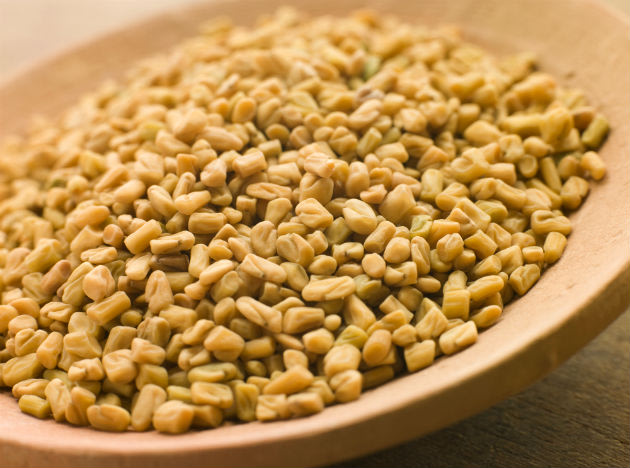
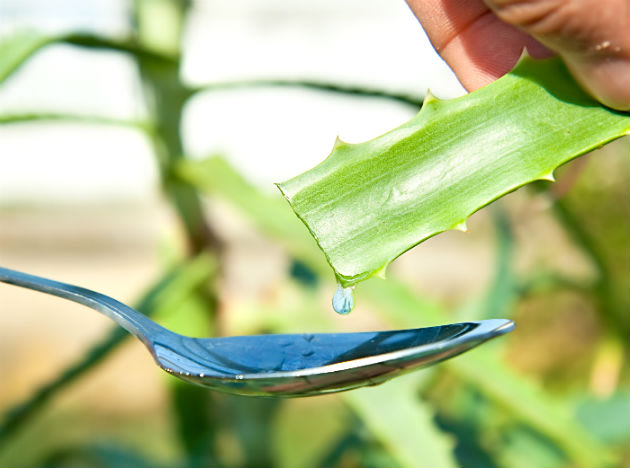

0 Comments:
Post a Comment
<< Home